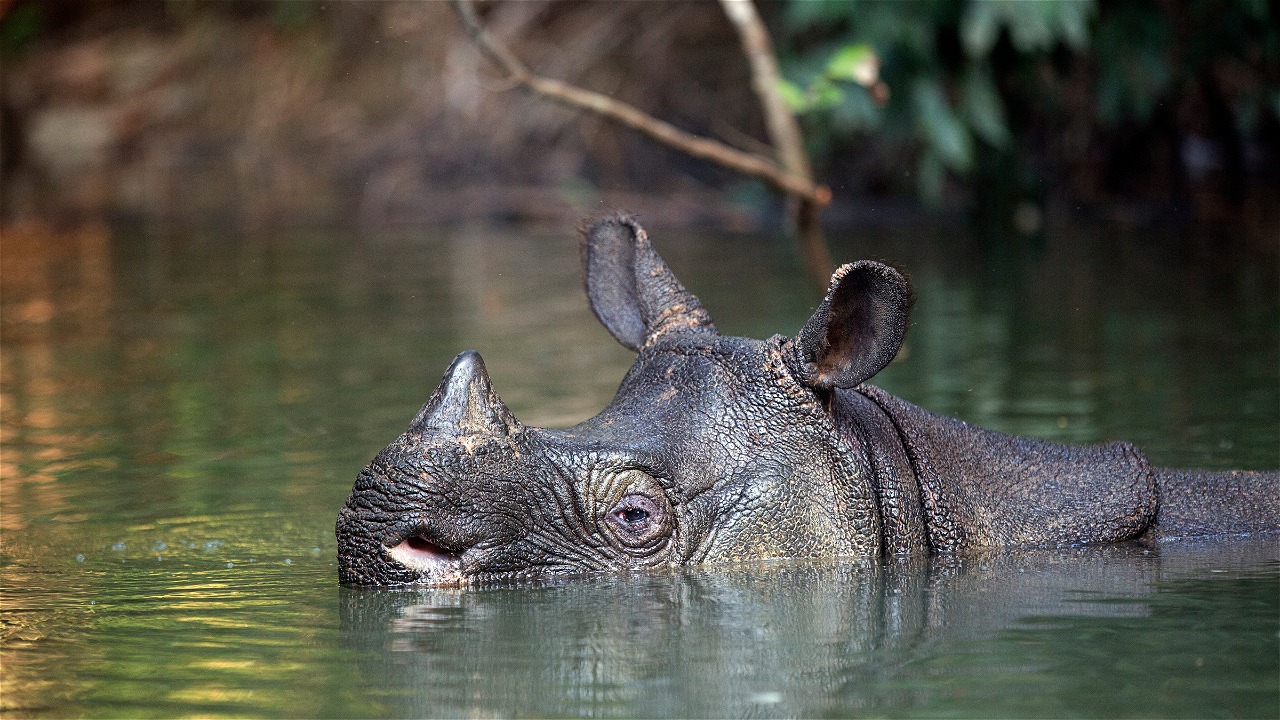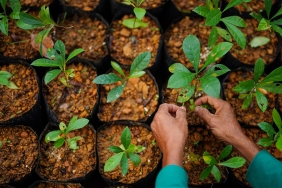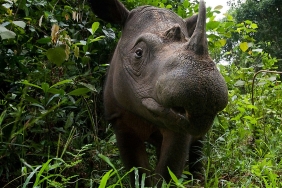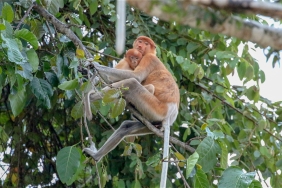ASIA’S FIRST RHINO RANGE STATES MEETING SECURES GOVERNMENT-LEVEL AGREEMENT TO BOLSTER CONSERVATION EFFORTS
Lampung (4/10) - WWF applauds the holding of the world's first Asian Rhino Range State Summit, but warns that rhinos in Asia will become extinct if no action is taken to boost their populations. Moreover, the momentum of past successes must be maintained in the face of growing pressure from poaching.
The meeting, hosted by Indonesia, took place on October 2-3 and resulted in consensus among government representatives from Bhutan, India, Indonesia, Malaysia and Nepal that it is not enough to conserve rhinos and prevent them from extinction, but also to restore their populations to stability.
While this consensus is very important, WWF emphasizes that the species still needs real action, not just words. "There are many proud success stories from across Asia that can serve as lessons for other countries. Nepal and India have successfully grown their rhino populations," said Dr. Christy Williams of WWF International. "Their methods have also been shared with other rhino range states in Asia. Now it's time to act and apply those methods where they are needed most."
The international community has paid more attention to the conservation of black and white rhinos in Africa, but on average very little attention to Asian rhinos. In fact, however, there are far fewer rhinos in Asia - as of March 2013, there were only 3,500 rhinos left in Asia (compared to Africa's 25,000 individuals). Some surviving species are even in a critical situation as a single population, numbers less than 50 individuals.
What is encouraging is that there is evidence that rhino populations can rebound back to similar numbers. The commitment and action of the Indian government has seen the rhino population in West Bengal Province more than double over the past 13 years. Vigorous efforts against poaching in Nepal and India have seen rhino numbers recover. Anwar Purwoto, WWF-Indonesia's Director of Forestry, Freshwater and Terrestrial Species, said, "These success stories are encouraging for Indonesia to restore the population numbers of Javanese and Sumatran rhinos."
"In India, we face a situation where rhinos continue to be poached to the brink of extinction," said Dr. Dipankar Ghose, Species and Landscape Director of WWF-India. "With increased protection, monitoring and conservation efforts from the government and civil society, India could increase its rhino population numbers over four decades. However, increasing cases of rhino poaching using sophisticated weapons also indicate the involvement of organized crime syndicates. This needs to be of particular concern."
Implementing conservation techniques, and maintaining the momentum with which they can be used, is critical now that three rhino species in Asia are on the IUCN Red List - the Indian rhino is vulnerable, and the Javan and Sumatran rhinos are critically endangered.
Regarding the agreement to fight poaching, WWF reminds key countries that receive or sell rhino horn to commit to the essentials contained in the UN Convention governing trade in protected animals, CITES.
Anwar Purwoto added, "Indonesia has taken an important step by hosting this meeting. Indonesia has also exchanged information and experiences on rhino conservation measures that have proven effective with other countries. The next step, and we believe it can be done, is the political will of the Indonesian government to achieve the national rhino population target."
At the opening of the Asian Rhino Range State Summit (2/10), Forestry Minister Zulkifli Hasan announced the discovery of the first visual evidence of Sumatran rhinos in the forests of East Kalimantan. The findings are the result of 3 months of intensive research between WWF-Indonesia, the Government and other partners.
Further information, please contact:
Diah R. Sulistiowati, Forestry Program Communications Coordinator, Freshwater, Terrestrial Species, WWF-Indonesia
Email: dsulistiowati@wwf.or.id, Hp: +62-811-100-4397





